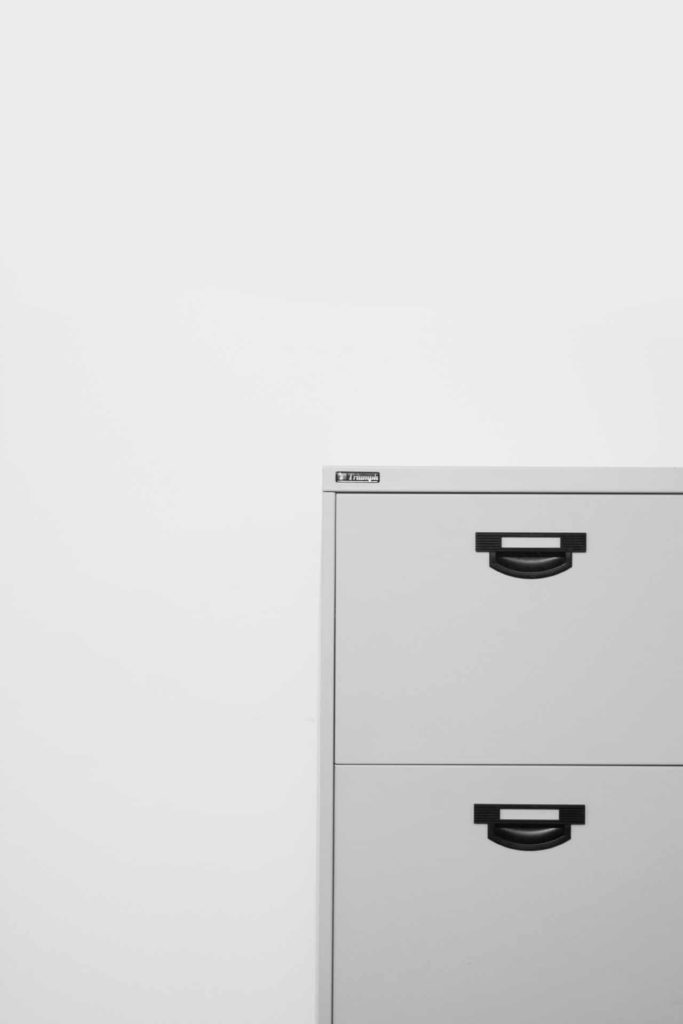Sadly, many Americans are experiencing hardships today, exposing that there is never a better time than right now to begin taking control of our finances and planning for our future. However, these things are easier said than done, and financial planning can be overwhelming to most.
The good news is that there are several resources to help in that area, and two of the most widely known products are Quicken and Quickbooks, but which should you choose?
Quicken is better than QuickBooks for personal finance since it is designed specifically for this purpose, whereas QuickBooks is for small business owners. Although both software programs share many of the same features, most of the capabilities QuickBooks provides are not needed by personal finance users.
This article will discuss the critical differences between Quicken and QuickBooks and explore free alternative financial platforms. We’ll also look into everything from the importance of budgeting and why we may struggle with it, to how personal finance software programs help create and maintain budgets.
How Can Financial Software Programs Help Personal Finances?
According to the writers at NerdWallet, a financial plan is “a comprehensive picture of your current finances, your financial goals, and any strategies you’ve set to achieve those goals.” It is the way to reduce stress where money is concerned. The best way for most people to start a formal money management plan is by using software programs like Quicken that help take the guesswork out of the process.
Remember, very few are innately good at managing money, and even those of us who try often find ourselves in a sea of numbers. Therefore, financial software programs offer a more even platform for us to build on.
Differences in Quicken and QuickBooks
As mentioned earlier, for the personal finance situation, Quicken is the clear choice for personal budgeting methods over QuickBooks simply because the latter is specifically designed for small business accounting needs. It is also more expensive than Quicken and has bells and whistles distracting if you do not need them.
At the most basic level, when beginning a personal financial plan, you have two things to keep up with:
- Accounts receivable – who owes you what and when
- Accounts payable – what you owe and to whom
If it were that simple, though, an excel spreadsheet would be sufficient. Unfortunately, it is not that simple in most cases, and there is much more to achieving and maintaining control over personal finances.

That’s where Quicken comes in. In addition to being able to handle the basic ideas of receipts and debts, Quicken also helps users to:
- Personalized budgets – No two financial situations are alike.
- Create invoices – This feature is excellent for the current “gig” economy.”
- Generate financial statements – Making tax season a breeze.
- Keep track of rental property transactions – Vital for property owners.
- Accept online payments (via PayPal) – This feature is incredible if you have renters.
- Make payments from within the app – Rather than navigating to a new app or desktop browser.
- Create a debt reduction plan – To help maintain better control.
- Transfer money between personal bank accounts – Keeping track as you go.
The things that QuickBooks can do that are not available with Quicken are:
- Track mileage (Mileage is not a tax deduction for personal taxes.)
- Payroll
- Manage 1099 Contractors
Such features are typically not needed in personal financing. However, there are many tips how to use QuickBooks for personal finances.
The only other differences in the programs are:
- Customer service – Both have phone and chat options, but QuickBooks offers a few more hours for customer service than Quicken.
- Price – Both programs have various price points that are worth investigating.
- Quicken has a one-year subscription available for $59.99
- QuickBooks has a one-year subscription available for $199.99
How Personal Finance Programs Help
Personal Finance programs are helpful because they force you to take an accurate and often painful look at where you are, where you want to be, and what budgetary guidelines to follow. The human mind is incredible at permitting us to forget about things that we don’t want to face, but facing financial problems makes our situations better.
The media has an abundant supply of testimonies from people like Suze Ormond or Dave Ramsey, who had to climb out of debt. The common thread among the stories is that you first have to take an honest look at where you are and then take steps to get to a better place financially.
The hardest part of this journey is often that first step, so personal finance programs like Quicken are helpful. The programs work without judgment and provide a sober picture of where you need to go.
Free Personal Finance Program Alternatives
The best personal finance software program comes down to the one you can and will use. If the program is hard to navigate, for example, you may find yourself dreading opening it up.
Quicken is often the first one people think of because it has been around for so long. It has stood the test of time because it works, but any program you will use will work.
If you are in debt, paying for a personal finance program to help you get out of your debt and gain control of your money may not make much sense. The good news is that there are free alternatives to create a personal balance sheet you might consider:
- Personal Capital: Not only is this program free, but it features a retirement planning tool as well. According to their website, Personal Capital is a fiduciary, and they offer advice on 401Ks and other investment options.
- Mint: This program is most similar to Quicken. It allows you to view all of your bills in one place if you link your accounts, and you can also pay bills from within the program.
- GoodBudget: This is another free service that most resembles the envelope system many used to use.
- YNAB: This interactive program is not free but does offer a free thirty-four-day trial. This program is different because it helps with budgeting and focuses on making users aware of every dollar they have. Personal financial planning is always at the forefront of their minds.
- Tiller Money: Tiller Monday is a platform that automates the spreadsheet option. It works with both Google Sheets and Microsoft Excel and can currently link to over 21,000 financial institutions. The platform also has pre-built templates to help users make a budget, focus on paying off debt, and the company advertises that it can also help run a small business.
The Importance of Accurate Budgeting
If this global pandemic has taught Americans anything, neither our jobs nor our money is secure. We are learning that our grandparents were right. Everyone needs at least six months of living expenses sitting in reserves, and we had better keep track of every single dollar we earn (such as with a personal finance flowchart) and spend because money has a way of slipping through cracks we did not know existed.
The importance of keeping an accurate budget cannot be over-emphasized. When we find ourselves amid a debt crisis, it is most often out of ignorance. Simply educating ourselves and taking corrective, deliberate actions can get us out of the situation and help prevent, or at least lessen, the possibility of future financial problems.
Why We Should Start Learning Young
These problems often start small. Think back to when you were a teenager and made more money than you needed to live because your parents paid for most things. Even if they required that you pay for your car, gas, and insurance, they likely did not require that you contribute to the mortgage payment, utilities, or groceries. Therefore, it was easy for you to pay top dollar for clothes rather than wait for a sale.
- Spending money on the latest piece of technology without really thinking about it was easy. At this point in life, few of us realized that money is seldom guaranteed, but bills are. It’s likely that your money mismanagement journey began then and continued because you never learned the importance of managing your money.
This ignorance was not your fault but needs to be addressed, and becoming educated in personal finance is not as complicated as many think. Remaining uneducated in personal finance matters, though, robs you of your peace of mind and your future.
Reasons We Struggle With Budgeting
Unfortunately, not knowing how to handle money is also more common than most will admit. For example, few people can accurately track what they earn and what they spend without a budget, and many may struggle to know where their money goes each pay period, even with a budget.
Money Allocation
The first time we create budgets, we often forget crucial categories, like entertainment, and underfund other categories, like food. These oversights create an unrealistic budget that fails almost as soon as we begin.
In other situations, we do not have a budget but rather an allocation suggestion for our money and monthly bills. This example is seen frequently with people who rely on spreadsheets for budgeting. At best, these spreadsheets keep track of bills, the minimum amount due, and the date each must be paid each month. Some even break down monthly bills like this into which weekly paycheck will pay which bill. You can even learn how to budget paycheck to paycheck.
The problem with this allocation suggestion method is that there is seldom any consideration given for yearly expenses like taxes or insurance or consideration shown for emergencies, such as car breakdowns or illness.

Ironically, most spreadsheets I have seen have a monthly savings allotment, which is good. However, this allotment is seldom kept because yearly expense categories overlooked in the budget still demand to be paid even when we do not list them. Therefore, the savings allotment on the spreadsheet goes to pay the yearly bill, and the cycle begins again.
Another reason for this constant personal finance struggle is that much of the time, even those who claim to have a budget have an inadequate but glorified checkbook register. In worse situations, many rely on viewing a bank balance before making a purchase, giving no thought to what financial responsibility is on the horizon. This behavior leaves no question why many Americans live with enormous debt and the financial pressure accompanying this debt.
Credit Card Debt
According to Dann Albright, head researcher for The Motley Fool, a stock trading service, during the 3rd quarter of 2020, American households carried an average of over $7,000 in credit and store card debt per month. This alarming debt amount does not include mortgages, student loans, medical bills, or auto loans — just credit card debt.
Further, this amount is average, meaning that many households have substantially more financial obligations while others possibly have none at all.
- The question becomes, “How did we get here, and what do we do about it?” And the answer is simple: because most of us do not have a financial plan, and many rely on a “check the bank before purchase” method of budgeting, we need to learn how to become better money managers.
The pandemic revealed that emergencies happen and, without an emergency fund set aside to take care of these unexpected expenses, the easiest, and sometimes the only solution seems to rely on credit cards to fill in the gaps.
Categories of Budgeters
This lack of planning and the resulting personal finance debt crisis is a typical and vicious cycle that causes families to live “paycheck-to-paycheck,” which perpetuates the cycle. However, there is hope, and that begins with knowing where you are. Likely, if you’re looking into financial software programs, you fall into one of three categories:
- You may be just starting your adult life and know that you must manage money and plan for the future. Either you watched your parents struggle or had a teacher or other family member who took time to teach you the importance of managing your money correctly from the start, so you are researching the best way to begin.
- You may be ready to take control of the family finances. This is because you are trying to avoid a pending crisis or are just emerging from one and never want to experience that turmoil again. This category of budgeter is most common.
- You are already a successful budgeter, and your finances are in good shape. However, your family may be growing; a life change such as a career move may be on the horizon, or you simply have more money to manage now and need more than a spreadsheet or envelope system of budgeting to help you keep track of your finances.
The good news is that if you fall into any of these categories, you probably do not need to pay a financial planner or advisor to give you advice or assistance at this point.
Wile there are a lot of pros and cons of hiring a personal accountant, it’s really not necessary. Though you may need to hire a financial planner in the future for your current situation, many software programs are practical and easy to use, and they are likely all you will need at this point.
Perhaps the best-known personal finance software platform is Quicken, in part because it has been around since 1984. Quicken’s staying power is most likely because it is pretty simple to use, and it works if you use it faithfully – no program will work if you approach it haphazardly.
A good feature with Quicken is that it can also handle rental property income and expenses. This feature is critical if you fall into Category # 3 listed above. If you own rental property, not keeping accurate records can cost you an incredible amount of money and frustration regarding tax deductions each year.
Is It Too Late To Start Managing Personal Finances?
The pandemic economy’s uncertainty has required many of us to take a more responsible look at managing our finances. This look was long overdue for some and right on time for many. Those who spend time learning the fundamentals of personal finance while they are young (as young as high school, even) will benefit by eliminating the worry most Americans have learned to accept as part of being an adult.
However, it is never too late to start gaining control over personal finances. Even those who do not give money management serious consideration until they are a few years from retirement can start creating budgets and working to better their financial situation. Learning the advantages and disadvantages of online banking at a young age is also helpful.

Unfortunately, many of us wait and delay until we are approaching retirement before taking any serious consideration of our finances. For the most part, this delay is primarily attributed to two reasons: lack of knowledge and being overwhelmed.
All of the personal-finance platforms listed will work if you use them. More importantly, all of them work to varying degrees towards educating users on building budgets that work, paying off debts, and tracking net worth.
Our personal finance situation is seldom as bad as we think it is, and it is always possible to recover from it. Whether you have outstanding balance vs. principal balance, you can turn it around. Look to people like Suze Orman for proof. It is never too late to start managing personal finances and the work you put in, regardless of the program you decide. In the end, your peace of mind will be worth every minute you spent educating yourself on how to manage your money.
Related Questions:
What is the best software for personal finance budgeting?
The best software for personal finance budgeting is Quicken. It comes in two versions, Basic and Premier. Basic is free to use for managing money on a PC or Mac computer, while the Premier version gives you more features for a monthly fee that varies depending on the plan you choose. The software does not come with online services, but these can be added for an additional cost.
What is the best software for at-home businesses?
QuickBooks is the best software for an at-home business because it handles all of your finances in quick and easy steps. You can work from home on a computer or laptop if you want to do accounting for your business at home, even when you are not there. It will allow you to keep track of your finances and save money as well.
What personal finance apps can be used without connecting your bank account?
If you don’t want to connect your bank account, Quicken is the best software. It creates budgets for you and tracks your spending trends so that you can control your finances more easily without having to connect directly to a bank account if you don’t want to do it. The possibility of third party checks is a payment option. You can track all of your finances with Quicken and even use Quicken to create immediate financial plans for yourself if you need help getting things organized.
Conclusion
It is never too late to start your personal financing journey. Whether you are debating saving money or investing which is more important, these two programs can help track your finances. When comparing Quicken vs. QuickBooks for personal finance, Quicken is an excellent choice to get you on the right track. Though you may have heard of QuickBooks, the clear preference for personal finance is Quicken since it was made for everyday users. Create budgets, manage your money, and get a hold of your finances now to be better prepared for the future.
If paying for a service is not an option right now, several free alternatives can get you started, which offer many similar features.



